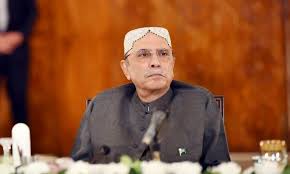France on the brink: how a budget deficit became a political crisis

Paris: France is stuck in economic limbo, without a budget and soon, possibly, without a government. The prime minister, François Bayrou, has called for parliament to hold a confidence vote on 8 September and, now that parties of the left and far right have pledged to bring down the government, on paper he doesn’t have the numbers to win.
On Tuesday, the Socialist party (PS) added its voice to the dissenters, allying it with the Greens and the far-right National Rally.
In an effort to head off a no vote, the finance minister, Eric Lombard, has stated publicly that asking the global lender of last resort, the International Monetary Fund, to intervene “is a risk that is in front of us”.
Without the Socialists, Bayrou’s centre-right administration cannot survive. And there is widespread agreement among economists that Bayrou’s fall will trigger further speculation about the health of the economy and the public finances.
At first glance, France’s situation would appear to be far from dire. It is a pillar of the euro monetary system. The government’s debts are lower in relation to the size of the economy than those of Italy, and the cost of financing its annual debt interest bill is well below the UK’s.
Yet while France’s debt to GDP ratio is lower than Italy’s 135%, Rome has a grip on its annual expenditure.
Italy might suffer from low growth, but no lower than France’s, and the EU commission forecast is for an improvement next year. And for inflation to stay low. At the same time, the debt to GDP ratio is on course to fall from 3.3% this year to 2.9% in 2026, below the 3% stipulated by the commission.
France, by contrast, is rapidly closing the gap with its neighbour after projections showed a persistent annual spending shortfall pushing the French debt to GDP ratio from 113% last year to more than 120% by the end of the decade.
For international investors, it is less the size of the debt that matters than its trajectory.
So while French debt interest costs are low, at 3.5% on 10-year bonds when the UK is coping with 4.7%, they are not as low as Italy’s. Even Greece outperforms France.
According to European Central Bank data, Greece has a debt to GDP ratio of 158%, but pays only 3.36% on its 10-year bonds.
The president, Emmanuel Macron, has tried to persuade the French people that the public finances need some major surgery but to no avail.
He has warned against complacency, saying the “years of abundance are over”. Probably his most unpopular act so far is to push through a rise in the retirement age from 62, saying that higher pensions payments are a drag on the state’s finances and deny the economy skilled workers.
Bayrou’s minority government aims to go further. It plans to save almost €44bn (£38bn), to bring down the budget deficit from last year’s 5.8% of GDP to 4.6% in 2026. One of its more contentious proposals is the scrapping of two French public holidays.
The only rescue plan available appears to be re-formulating the budget to bring the Socialist party on side, though months of wrangling have made that seem a distant prospect.
Joseph Dickerson, an analyst at Jefferies, said that despite a fall in the value of French banks on the stock market today, there were few repercussions from higher debt costs of political instability for the French financial sector, at least in the short term.
He said the political crisis was more a threat to economic growth than the solvency of the government.
Analysts at Goldman Sachs said they expected Bayrou to temper his demand for a reduction in the annual deficit as a way to save his administration. However, a higher deficit “would imply a further increase in the debt-to-GDP ratio and put potential credit rating adjustments back in focus”.
This would bring with it a boost for the economy because “a smaller deficit reduction into next year would imply a smaller fiscal drag and be positive for growth, all else equal”, they said.
“But the tightening in financial conditions and increase in policy uncertainty would likely be negative for growth. Taken together, we think that growth would likely continue to run at 0.6% in 2025 and 0.9% in 2026,” they added.
These figures will make grim reading for Macron, who pledged to develop a more vibrant, high-growth economy.
With French polls showing there are few plans around which a majority of French people are willing to coalesce, a budget could be a long way off.





